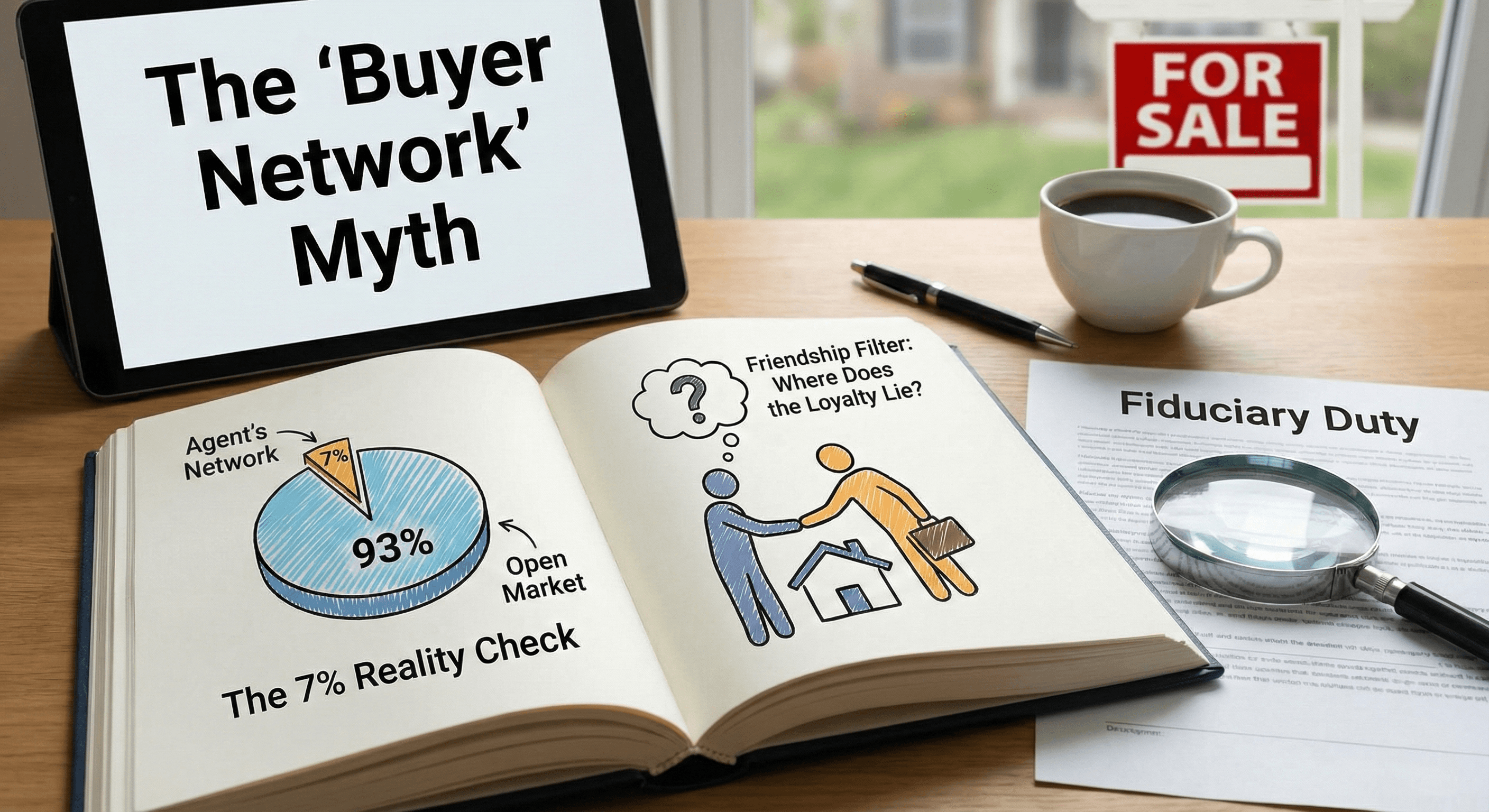Sep 9, 2025

How's the Market? The Only Question That Matters Is How to Win In It
The Market Reality Check
When people ask "How's the market?", and they ask constantly when it's neither crashing nor soaring, what they are really asking is: "Will my home sell for what I hope?" The better question is: "How do I maximize my outcome regardless of market conditions?"
Here is what I know from trading markets since 2002 and executing $13M in personal property transactions: Markets don't determine outcomes. Strategy does. In 2008's crash, strategic properties still commanded premiums. In 2021's frenzy, poor positioning still left money on the table. Today's market, with rates in the 6-7% range and RSU volatility affecting Bay Area buyers, isn't about whether homes sell. It is about which homes capture value and which become commodities.
The Three-Tier Reality: Where Strategy Meets Market
Think of today's market like the automotive industry. Not every car sells the same way:
Premium Position (The Ferrari)
Properties presented with investment-grade strategy, such as impeccable condition, strategic improvements, and compelling narrative, still create competition. These homes generate multiple offers because they are positioned to resonate with qualified buyers' aspirations, not just meet their requirements. Recent example: 509 Knollwood beat its identical neighbor by $32,000 through strategic positioning alone.
Market Position (The Lexus)
Solid properties with some limitations, like dated finishes, quirky layouts, or location trade-offs, sell at market value through negotiation with individual buyers. Price becomes more elastic based on presentation quality and strategic positioning. The difference between extracting value and leaving it behind? How the story is told and to whom.
Commodity Position (The Used Car Lot)
Properties with significant challenges, such as poor layouts, deferred maintenance, or location issues, compete purely on price. These require either substantial investment to elevate categories or aggressive pricing to create value proposition. The smaller buyer pool means longer exposure and price erosion.
The critical insight: Your property's category isn't fixed. It is influenced by strategic preparation, positioning, and pricing. The same home can be premium or commodity depending on execution.

The Expertise Gap: Why Most Sellers Leave Money Behind
Personal attachment is expensive. You see your home's memories; buyers see its limitations. This gap between emotional value and market reality is where fortunes are lost. Most agents, chasing volume over value, won't risk offending you with truth. They'll list at your price, hope for the best, and then manage your disappointment through price reductions.
My approach is different because my experience is different. Having lost $100K on one property and made $1.2M on another with my own capital, I've paid for the clarity to see what buyers see. When I recommend strategic improvements or suggest patience, it's not opinion. It is methodology proven through personal risk.
Leverage Dynamics: Creating Seller Advantage in Any Market
In balanced markets, unprepared properties give buyers control. They have options, time, and negotiating power. Our objective is to reverse this dynamic through:
Strategic Preparation: ROI-focused improvements that amplify value, not just aesthetics
Narrative Engineering: Crafting compelling positioning that resonates with qualified buyers
Market Timing: Understanding when RSU vesting, bonus cycles, and market psychology align
Competitive Positioning: Using the Benchmark Method to position against actual competition, not historical comps
The result? Even in balanced markets, properly positioned properties create competition, shifting leverage back to sellers.
The Accountability Framework
Here's the uncomfortable truth: If you dictate strategy against expert recommendation, choosing your price over market reality, your timeline over optimal timing, and your preferences over buyer psychology, you own the outcome. You wouldn't override your surgeon mid-operation or your attorney mid-trial. Why override your advisor mid-transaction?
The sellers who capture maximum value are those who:
Trust expertise over emotion
Accept market reality over wishful thinking
Invest in strategic improvements over cosmetic gestures
Choose patience over desperation
If you want control more than results, discount brokerages exist for that. But remember: saving 1% on commission while losing 10% on price isn't savings. It is expensive stubbornness.
The Bottom Line
Markets don't determine outcomes. Methodology does. Whether rates are 3% or 7%, whether buyers are frenzied or cautious, the properties that win are those positioned to win. This requires three things most sellers lack: objectivity about their property, discipline in preparation, and an advisor who values their net proceeds over their feelings.
Your home is your fortune. In any market, at any time, the question isn't whether it will sell. It is whether you'll capture its full value or leave it for the next owner.
The market is what it is. Your outcome is what you make it.



